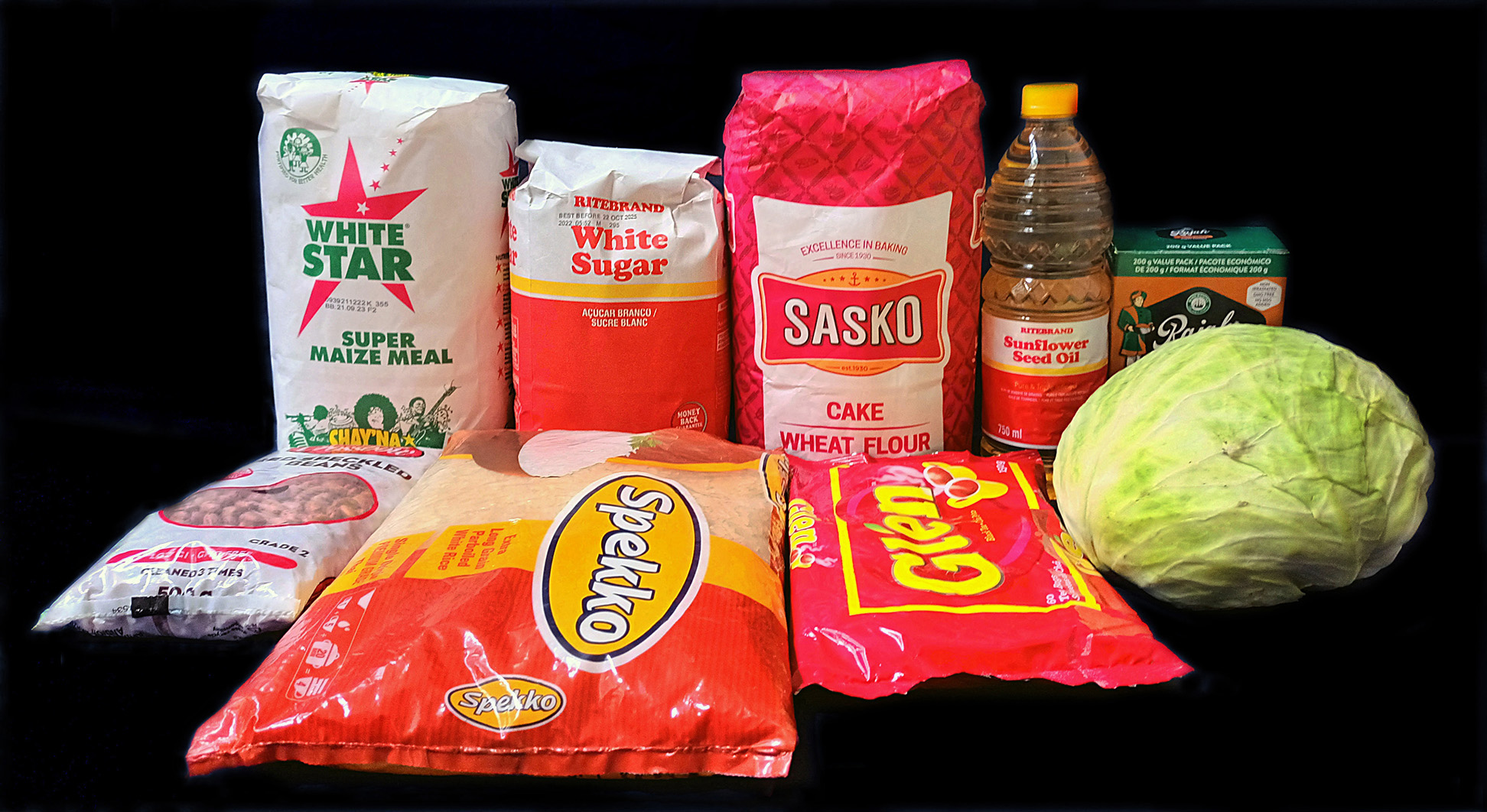The cost of the basket has seen a significant decrease — of R43 — from late December. This is partly due to food inflation being at its lowest since 2020, the year of the Covid-19 pandemic.
The basket now costs R368.88, the first time it has been within the grant amount in more than a year. This doesn’t take into account transport to collect the grant, which can range from R20 to R80.
A Stats SA report released last week showed that inflation for food and non-alcoholic beverages in December was 2.5%, up from 2.3% in November. These rates are lower than in previous years. The average inflation rate for 2024 was 4.4%, down from 6% in 2023. Inflation in 2024 was the lowest since 2020 when the average rate was 3.3%.
“The annual rate for bread and cereals remained steady at 3.7%. The monthly rate was -0.2%, with several wheat-based products declining in price between November and December. Examples include instant noodles (down 2.2%), cake flour (down 1.1%), macaroni (down 0.7%) and brown bread (down 0.6%),” according to the report.
“The price index for meat softened by 0.4% in the 12 months to December, representing the lowest annual rate since May 2019 (-0.9%). Products that registered the largest annual declines included sausages (down 3.3%), pork (down 2.2%) and whole chicken (down 1.7%). Several products were more expensive, however, including beef extract (up 5.1%), bacon (up 4.8%) and ham (up 4.2%).”
 (Graphic: Rudi Louw)
(Graphic: Rudi Louw)
Access to SRD grant
Meanwhile, in a victory for South Africa’s most vulnerable, the North Gauteng High Court in Pretoria handed down judgment in a Social Relief of Distress (SRD) grant court case, finding in favour of the Institute for Economic Justice (IEJ) and #PayTheGrants on every major issue.
The Department of Social Development (DSD) and the South African Social Security Agency (Sassa) have the mammoth task of reworking regulations that saw fewer than 50% of applicants successfully accessing the grant.
The department said it was still mulling over the judgment. It can amend the application process or appeal to the high court.
The IEJ’s summary of crucial points:
- “The SRD grant is not ‘temporary’. The State grounded their case in the argument that the SRD grant was only a temporary measure and therefore could be handled differently from other social grants, and extended, rolled back or terminated at the whim of ministers;
- Procedural ‘safeguards’, while legitimate in principle, cannot be designed with the ulterior motive of limiting the number of people who access the grant — the judge held that application and verification processes imposed by the government — including automated checks on bank accounts and inaccurate government databases like UIF and NSFAS — were not reasonable measures to safeguard the grant from abuse, but were in fact designed to limit uptake of the grant by eligible people;
- The government must apply a reasonable definition of ‘insufficient means’ when assessing eligibility: the utilisation of out-of-date and faulty government databases to assess whether the applicant is eligible is unreasonable and unfair and is therefore unlawful; and
- The bank verification process (whereby Sassa checks what money has passed through someone’s bank account that month to determine their eligibility) is irrational and unlawful.”
#PayTheGrants deputy chair Elizabeth Raiters said they hoped all points would be considered and applied to help benefit people without an income.
“I speak to people who receive the grant or who are hoping to receive the grant and they are hopeful this will help them access the money. Right now, DSD and Sassa have not made any statement, so we do not know where we stand,” said Raiters.
The high court gave the department four months to implement the changes. DM




 (Graphic: Rudi Louw)
(Graphic: Rudi Louw) 